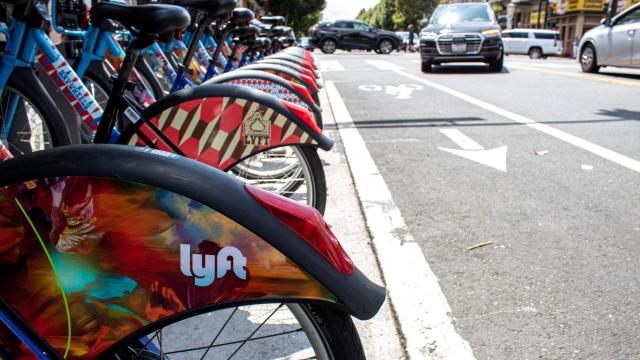Lyft plans to start recycling its e-bike and scooter batters through a newly announced partnership with Redwood Materials, as first reported by The Verge. Lyft owns 12 different municipal bike share programs — like New York City’s Citi Bike and San Francisco’s Bay Wheels — in addition to its scooter program in four cities.
As Lyft’s largest microtransport share, Citi Bike alone has 5,000 electric bicycles, according to a report from Bloomberg. Which is a lot of batteries. E-Bike batteries only last a few years, and after that generally just become part of the growing pile of e-waste that threatens to eventually engulf us. So it makes sense that the rideshare company is aiming to do something different.
Redwood Materials was started in 2017 by former Tesla executive, Jeffrey “JB” Straubel. It initially began as just a recycling facility, but announced its intentions to expand into battery materials manufacturing in 2021 — in a bid to spearhead a domestic, circular U.S. battery economy. And its first production facility, slated to make usable cathode and anode foils, is reportedly close to completion in Nevada, according to MIT Technology Review.
Since its start, Redwood Materials has quickly grown and has existing partnerships with Tesla and its pending Panasonic battery plant under construction in Kansas — as well as with Ford, Toyota, Nissan, Amazon, and other major companies.
In Lyft’s partnership, the company said it will collect its drained batteries and ship them to Redwood’s new Nevada facility. There, Redwood told the Verge it will chemically recycle what it can, stripping the valuable metals like copper and cobalt out of the trashed batteries to be reintegrated into future batteries — potentially even for cars. “We collect 130 e-bike batteries, we’ve got enough battery metals to make a new EV battery,” Jackson Switzer, a Redwood Materials executive, told the Verge.
Redwood Materials claims all of its recycling is done domestically, and if they successfully manage to transform batteries from dead waste to reborn power sources, they’ll be a leader among U.S. recyclers. But lofty goals aside, it’s worth noting that Redwood Materials has yet to demonstrate how its closed-loop system works. It hasn’t yet created new cathode and anode material out of recycled scraps at scale, and it’s unclear what percentage of those new materials will be made from the old. Its new factory is slated to be finished by the end of this year, according to MIT Tech Review.
And hopefully, the company does deliver as promised. The current recycling stream for batteries and other e-waste is deeply broken. So much so that Uber once landfilled thousands of e-bikes because it was “too complicated” to find an alternative solution.
Often, dead batteries are amassed and shipped overseas where they languish and cause environmental contamination. Yet, for the environment and for the growing battery-based technological boom, we desperately need a better system. Without effective and significantly increased recycling, we simply won’t have enough materials to supply battery demand (and even that probably won’t suffice.)
